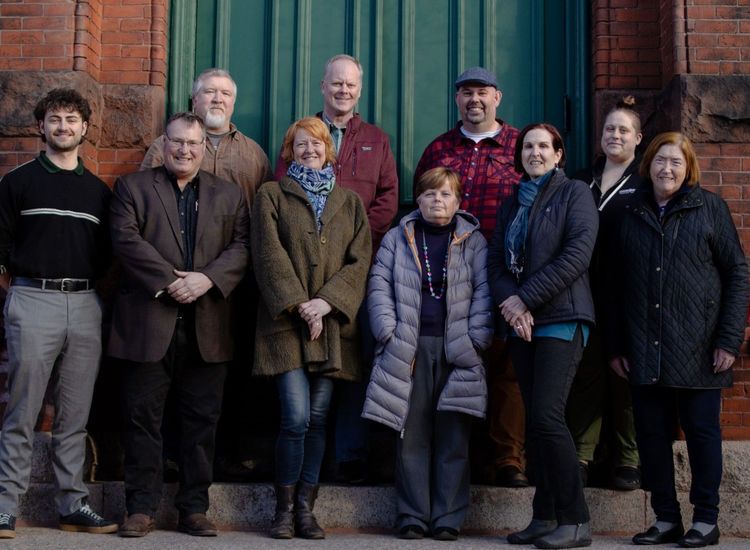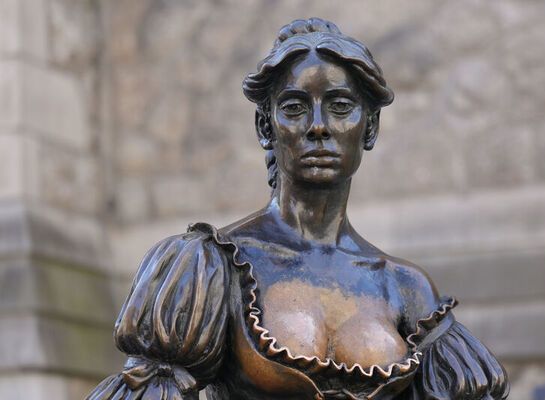Books / By Peter McDermott
[caption id="attachment_22344" align="aligncenter" width="300" caption="Noomi Rapace plays Lisbeth Salander."]
Philadelphia-born, Florida-based Michael Connelly's Los Angeles-set books have very broad appeal, at least on the basis of the evidence available to me. Back in Ireland, I've found them on the bookshelves of people one wouldn't otherwise think had similar reading tastes.
Librarian Seamus Scanlon and graduate student Joe Long have both enthused about John Connolly in this column, though they hardly represent a cross section of readers. I don't broaden the demographic much either, but I can say that I was very impressed recently with Connolly's "The Unquiet." I've read several by Connelly, who is Irish-American, over the years and Connolly is certainly up there with him. While there is no overt Irish content in the Maine-set "The Unquiet," Connolly, nonetheless, brings a Dublin wit and sensibility to the proceedings, as well a skeptical outsider's eye.
I also read "Faceless Killers," the first in Henning Mankell's Wallander series, which former Echo publisher Claire Grimes recommended in this space a few months back, and can report that I was hooked from the first page.
In that same column, Jay Mwamba, the Echo's soccer and boxing correspondent, recommended Stieg Larsson's Millennium books, which have thus far, even before the Hollywood versions, sold 45 million copies worldwide. He did so as someone who is normally a reader of history, politics and non-fiction generally. Well, that's perhaps touches on part of the appeal. Larsson was, before his fatal heart attack in 2004, a campaigning journalist with a particular interest in the Nazis of history, neo-Nazis, political chicanery and big-business corruption, all of which feature in the books.
The New Yorker's Joan Acocella poses the question more generally in the Jan. 10 issue: just what makes the Millennium Trilogy so extraordinarily popular? First, all the usual issues get an airing in the essay, which is available online. Did Larsson, who had no previous reputation as a stylist, write them himself? Or did his long-time partner Eva Gabrielsson help him?
And, how heavily were the books edited before publication in Sweden? Not enough, says Acocella, who isn't overly impressed with Larsson. She suggests that the Swedish movie versions are more entertaining because the makers were forced to streamline the plots. (Against that, in a recent piece in the London Review of Books, Will Frears says that Larsson's works are appealing precisely because so many elements are packed into them.)
Acocolla does concede that Larsson is a great storyteller. She believes, too, his absolutist morality, as reflected by protagonists Mikael Blomkvist and Lisbeth Salander, is definitely part of the recipe for success. She finds the anti-masculinist Blomkvist, though, a ridiculous creation (modeled on Larsson himself) and somewhat hard to take. Clearly, she argues, it's the young cyber-punk hacker Salander who's bringing them in.
Most would agree, but perhaps not with this line of reasoning: "The woman warrior has become a beloved feature of the movies, from Nikita to Angelina Jolie's Lara Croft, and beyond. It is also, reportedly, a sexual fantasy popular with men - something else that may have helped to sell the books."
Acocella also suggests that a "drawing card of the trilogy may be its up-to-dateness, particularly of the technological variety." Computers are rather more central to the plot and character development, she says, than in other mystery novels.
While 2004 wasn't yesterday, she's is on the right track, in my view. Lisbeth Salander, like Inspector Wallander and Charlie Parker, is an anti-hero (that is, a hero against type). However, her extraordinary facility with computers (I stress I've only read the first book) is as close to a superpower as is allowable in the detective/mystery genre. Lisbeth is an anti-hero with near superhero status. It's a winning combination.
The Books column is published weekly in the print edition of the Irish Echo.








